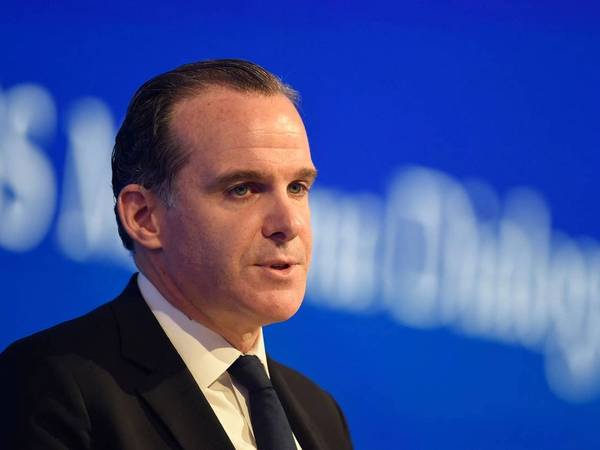Iran has returned in the Vienna nuclear talks to where it was when the process broke off in June for the Iranian elections, a senior US official said Thursday.
Brett McGurk, US National Security Council Coordinator for the Middle East and North Africa, told the Carnegie Endowment for International Peacein a live webinar that the Biden administration was “not trying to pursue a transformation of this region” and was focused on US interests rather than “maximalist goals”, including “regime change.”
McGurk, who has served under the successive administrations of presidents George Bush, Barak Obama and Donald Trump, identified the prevention of an Iranian nuclear bomb as a core US interest and the “security of Israel” as a “first principle.”
Reiterating Biden officials’ criticism of President Trump over leaving in 2018 the 2105 Iran nuclear deal, the JCPOA (Joint Comprehensive Plan of Action), McGurk said “this problem is not one that we should be having” given the JCPOA “did put a cap on Iran’s nuclear program through 2031.”
McGurk said the Vienna negotiations, which began in April aimed at reviving the JCPOA, were reaching a “culmination point…pretty soon.”
“We’re going to know very soon whether or not it’s possible for the Iranians to return to compliance with the nuclear deal on terms that we and the international community can accept,” he said.
Iran Hit ‘United Front’
McGurk stressed a common approach of world powers taking part in the Vienna talks, suggesting the Biden administration had “over the past year united the P5+1,” a reference to the five permanent members of the UN security council, plus Germany, who all signed the JCPOA and are present in Vienna.
The Iranians had been “surprised by the united front that they have hit,” McGurk said, adding that the talks were basically now…back to where we were at the end of last summer.”
The talks were suspended in June after the Iranian presidential election and the transition to the new administration of President Ebrahim Raisi (Raeesi), who appointed new negotiators claiming they were taking a fresh, and more assertive approach in the talks.
This meant, McGurk explained, that there was a “good chance of a deal” but also “a pretty good chance that there’s not going to be a deal.” He insisted that the US was “prepared for either scenario,” but that while Washington would “perhaps” be interested in an interim agreement its focus remained on securing “full compliance” of Iran with the JCPOA, an aim McGurk said that was shared by all the world powers.
Time, however, the US diplomat stressed, was limited as Iran continued the advances made in its atomic activities begun in 2019, which have included enriching uranium to 60 percent.
“We are now on the verge of a nuclear crisis, because Iran’s program has advanced, even as it has faced tremendous setbacks,” McGurk said, “and it’s getting to the point where the break-out time – where Iran would have enough fissile material to be able to divert material for a weapons program where we could not detect it, or [United Nations] inspectors could not detect it [in time to intervene] – we’re starting to approach that window.”
